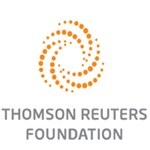
Top stories







It highlights that businesses are ill prepared for greater tax transparency, with only 19% having budgeted for increased costs to meet a tax transparency strategy.
The findings have serious implications in relation to the potential success of a global mandate to manage information transfer better across borders and for organisations to provide open and clear financial data by the end of 2015: a deadline set by the G20. The results reveal that despite a belief that tax transparency will add a significant additional administrative burden (52%) on the tax department; just 19% of respondents have budgeted for increased costs.
Key findings
Even though 62% say they understand the implications of tax transparency on the tax department, the findings suggest that the definition of what transparency means to their business varies considerably. 'Explaining tax policies and strategies' was the most popular, followed by 'supplementary figures in the annual report' and in third place, 'disclosures to explain total tax contribution (borne and collected)'.
Commenting on the study, Charlotte Rushton, MD Asia Pacific and EMEA, for the tax & accounting business of Thomson Reuters, said, "The G8 and OECD have committed to a global government push for greater transparency in the way companies comply with local and global tax laws. Tax authorities around the world are becoming more aggressive and focused, in turn increasing disclosure and transparency requirements on the business community. Our findings suggest that there is a risk that many could find themselves on the back foot if they do not start planning their transparent tax strategy soon."
The findings reveal the key factors driving tax transparency strategy include:
"The majority of organisations surveyed are concerned that increased transparency will result in a significant administrative burden. The pressure from governments is set to grow in coming years and additional support is paramount in moving towards a new set of regulations as seamlessly as possible and with the least amount of resource and administrative disruption.
"It's no longer a case of ticking the local tax box, companies need to be comfortable and confident if they come under scrutiny no matter where they do business," concluded Rushton.